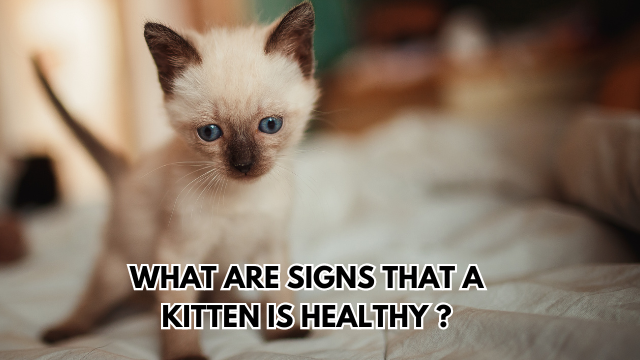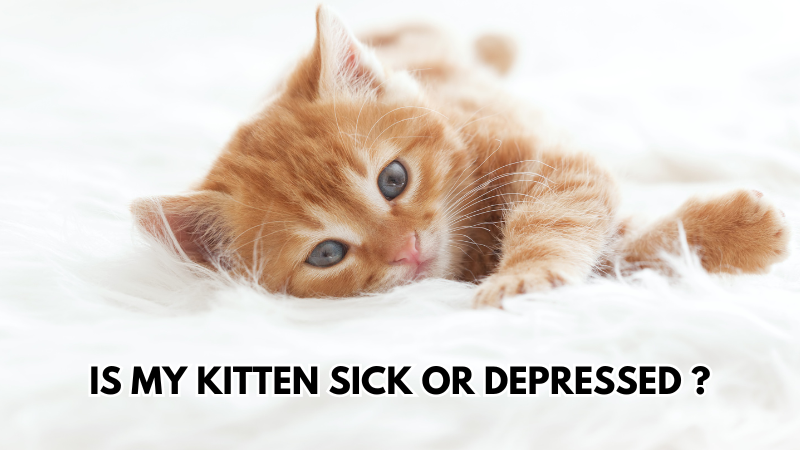They say you can’t teach an old cat new tricks, but what about kittens? Can you predict if that cute little furball will grow up to be a loving, good cat or a bit of a troublemaker?
- Socialization Skills
- Playfulness and Energy Levels
- Curious and Adventurous Behavior
- Comfort with Routine
- Affectionate Behavior
- Ability to Handle Stress
- Litter Box Habits
- Bonus Tip
Good Cat or Troublemaker ?
According to a study published by The Humane Society, early life experiences and personality traits in kittens can offer insight into the kind of adult cat they’ll become.
For anyone adopting or fostering a kitten, it’s natural to wonder how their tiny behaviors and interactions now will reflect their future.
So, let’s look into the signs that your kitten might grow into a good cat.
1. Socialization Skills
One of the strongest indicators of whether a kitten will grow into a good cat is how well they socialize with both humans and other animals.
Kittens that are handled by people from a young age (usually between 2 and 7 weeks old) are more likely to grow up comfortable with human interaction.
Watch how the kitten reacts when you pick them up or pet them.
Are they relaxed and purring, or do they squirm and try to get away?
A kitten that enjoys being handled now will likely grow into a cat that is more affectionate and calm around humans.
Kittens that have been exposed to different people, sounds, and environments tend to be more adaptable and less anxious as adults.
If your kitten is curious and comfortable exploring their surroundings, it’s a great sign that they’ll handle new situations with ease later on.
According to PetMD, socialization is key to a kitten’s development, and those who are well-socialized are less likely to be fearful or aggressive as they mature.

2. Playfulness and Energy Levels
Kittens are naturally playful creatures, and how they engage in play can give you clues about their future personality.
Play is how kittens learn important skills like hunting, coordination, and social boundaries.
A kitten that enjoys interactive play with toys or other kittens is likely to be an active, playful adult cat.
However, pay attention to how they play.
Do they exhibit friendly, balanced playfulness, or are they overly aggressive?
Kittens that are too rough might have trouble learning social cues, which could lead to behavioral problems later.
But don’t worry too much—most kittens go through a phase where they explore their boundaries, so a little rambunctious behavior is normal.
Just ensure that they also respond well to correction and learn when to ease up during play.
PetCare.com suggests that kittens who learn positive play habits early on are more likely to engage in healthy, fun play as adults without becoming destructive or aggressive.
3. Curious and Adventurous Behavior
Kittens are known for their curiosity.
A kitten that actively explores their environment and interacts with new objects or toys is likely to grow into a confident, inquisitive cat.
These curious kittens often adjust better to new environments, making them less likely to hide or become stressed in unfamiliar situations.
On the flip side, if a kitten seems overly timid or frightened by small changes in their surroundings, they may grow into a more anxious adult cat.
This doesn’t mean they won’t be a good pet, but they might need more patience, understanding, and a calm environment to thrive.
CatCare.com recommends giving your kitten plenty of safe opportunities to explore, as this helps them develop confidence that will last into adulthood.
4. Comfort with Routine
Cats are creatures of habit, and kittens that adapt well to a daily routine are often easier to manage as adults.
Pay attention to how your kitten reacts to feeding schedules, playtime, and rest periods.
A kitten that quickly settles into a routine and doesn’t fuss when it’s time for meals or naps is likely to grow into a cat that’s predictable and easier to care for.
A consistent routine also helps reinforce positive behaviors.
If your kitten knows that certain times of day are for food, play, or rest, they’ll be less likely to develop unwanted behaviors like waking you up in the middle of the night for attention.
The ASPCA recommends establishing a routine early on, as kittens who are used to a structured environment tend to feel more secure and less stressed.
5. Affectionate Behavior
If your kitten already shows signs of being affectionate—whether it’s purring, cuddling, or seeking out your attention—you’re in luck!
These are all great indicators that they will grow into a loving, friendly adult cat.
Cats that are affectionate as kittens are more likely to be loyal companions who enjoy spending time with their humans.
But if your kitten is a bit more independent, don’t worry.
Some cats are naturally more aloof but can still be wonderful pets.
It’s important to respect their boundaries and allow them to come to you when they’re ready.
Even independent kittens can form strong bonds with their owners; they just might express their affection in subtler ways.
According to Purina, some kittens are more predisposed to being affectionate, but all cats can form deep emotional connections with their humans if given the right environment and care.

6. Ability to Handle Stress
Just like humans, cats react to stress in different ways.
Some kittens are naturally more resilient, while others might struggle with anxiety.
A kitten that handles loud noises, new people, or changes in their environment with curiosity or calmness is likely to grow into a more adaptable cat.
If your kitten seems anxious or stressed easily, it doesn’t mean they won’t be a good pet.
It just means they might need more time and patience to feel comfortable. Creating a calm and predictable environment for them will help ease their stress and make them feel more secure.
Catster points out that kittens who are introduced to a variety of stimuli in a positive, controlled way are less likely to develop long-term anxiety issues.
7. Litter Box Habits
Believe it or not, your kitten’s litter box behavior can tell you a lot about their future as a cat.
Kittens that take to the litter box quickly and consistently are more likely to maintain good bathroom habits as adults.
A kitten that uses the litter box regularly without issues is showing signs of being clean and well-adjusted.
On the other hand, if a kitten is having frequent accidents outside the box, it could indicate either a medical issue or a behavioral problem that may persist into adulthood.
Consistency is key here—make sure they always have access to a clean litter box and that it’s placed in a quiet, comfortable spot.
The Humane Society advises early litter training to ensure your kitten develops healthy habits that will last into adulthood.
Bonus Tip: Patience and Love
At the end of the day, every kitten is unique, and not all behaviors are set in stone.
With plenty of patience, love, and positive reinforcement, even a more challenging kitten can grow into a wonderful good cat.
Early training, socialization, and a nurturing environment can make all the difference in shaping their personality.
If you’re concerned about your kitten’s behavior or want to help them grow into a well-adjusted cat, consider working with a feline behaviorist or your veterinarian.
They can offer personalized tips on how to address any issues early on and ensure your kitten becomes the best version of themselves!
Read: When Should You Start Litter Training Kittens ?
There are many signs that can give you a clue about what kind of adult cat your kitten will become.
From their playfulness and curiosity to how well they handle social situations and stress, paying attention to these behaviors can help you better understand your kitten’s potential.
However, every kitten deserves the chance to grow into a loving and good cat with the right care and attention.***
Watch Videos about Cat & Kitten Care on Youtube @naowthecat